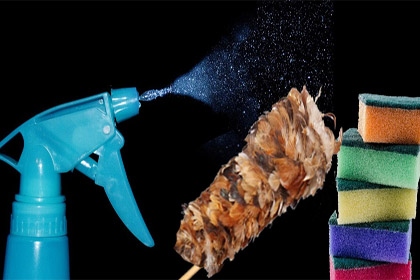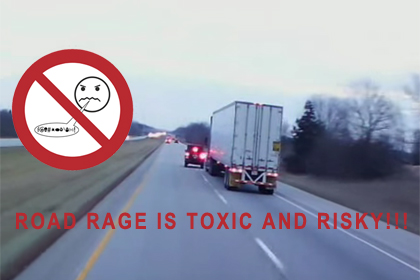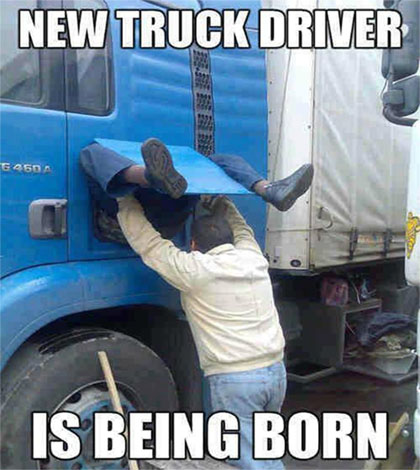New Truck Driver is Being Born
Your First Job
Congratulations! You made it. You're out of school with a fresh license, got yourself a new job with a company willing to train you. It is exciting time of your life right now. You've told your family, you've told your friends.
Most companies will have a trainer train you for a solid period of time, others, not so much. Your first day on the job, you've found out the in-school eight or more week training you've received, and worked hard for, only did one thing for you, got you your truck driver license. All the training received in that time will keep you safe, but you don't know hardly anything about the industry you're about to be submerged in.
The most essential skills in a truck driver job description, is the ability to plan and be organized. Prior to leaving on a trip, buy things you will need, take a good look at the trip orders, review dispatched instructions, check them for accuracy and do road trip planning. Good road trip planing and other logistic considerations (fuel stops, rest areas, information about the area you will be traveling, weather conditions, etc.) is essential for successful trips and safe travel. Always familiarize yourself with your route to avoid dangerous situations and manage your time wisely. Let me beat a few things to the punch, and describe a few things you will need in order to keep the things you use daily and your head organized. What should you buy and have ready before your first trip, and why. I will attempt to do my best, so if I miss something, I apologize.
Truck Driver Essentials
1. Personal identification. Drivers license, Health card and Passport (if you will be traveling in cross-border commerce). Self explanatory.
2. Safety Workwear. Work boots, protective goggles/glasses, high visibility vest and work gloves – because safety is important, and you wouldn't want to bang up your toes or get hit in the parking lot, you definitely will need these. There is customers out there who will not even let you in the facility without it, and some who will charge your company a $1,000.00 for a driver who shows up without these basic pieces of personal protective equipment.
3. Clothing. Seven days worth of clothing, head to toe, plan for all weather conditions, especially if you're traveling in Northern Canadian Provinces, or Mountain United States. Temperatures can dip very quickly. In a matter of 3 hours, you could go from comfortable weather to snow.
4. Personal hygiene items. You have to keep clean. Truck stops offer showers, laundry facilities, restaurants, driver lounges and most amenities you will require while on the road. Fueling your trucks will give drivers free showers and use of towels, but you still need your own shower gel, hair care products, shaving essentials, deodorant, cologne or perfume, nail care products, feminine products etc.… Most of these items will fit inside a compact shower bag. May I suggest protecting your liquid products against accidental spillage, so it does not wreck your bag. You're always on the move. If it can spill, it may.
5. Note pads and pens. You can never have enough of these. Writing down phoned or satellite messaged information given to you by your dispatch, safety department, payroll or customers may be important enough to keep.
6. Log book binder. And not the cheap run-of-the-mill binder. Invest into a quality product, so it lasts you a few years. Your binder should be big enough to hold 90 pages of blank logs, 15 pages of current daily logs, Schedule 1 inspection, and some other handouts you may use on daily basis. It should also be big enough to store all your current trip paperwork in it along with your company's trip envelope. This information is very important, as you will be fined for not having it, or your company may not get paid if you loose the paperwork. You should keep this organized at all times.
7. Clipboard. Preferably one with a weather protective cover. This clipboard should house your current load paperwork in it, and nothing else. This clipboard is where you store your current load paperwork, and it exits the truck with you when you arrive at a customer. Don't let your paperwork get wet, snow covered or dirty. It is important to keep it neat and organized, as it is how you make that hard earned dollar.
8. Briefcase. The briefcase is where you store all your extras. Paperwork from the company, like the company policy manual, handouts by the company, extra bolt or other seals, calculator, notepads, trip envelopes and other paperwork you must fill out, extra cell phone charger, stapler, three hole puncher, backup flashlight and batteries etc. Use the briefcase instead of truck's storage pockets to store your stuff, as the odds are, you're in the trainer's truck, and you wouldn't want to forget anything.
9. Road Atlas AND a GPS Device. Four around $50.00, you can go to almost any truck stop and purchase a Rand McNally Motor Carrier Road Atlas. This road atlas is important. Read the pages, and analyze your route. Purchasing a current year with laminated pages is best, as you can use dry erase markers to highlight your stops and routes, then erase it once complete. See my article on Truck Drivers and GPS to see why having a map is just as important as it is to have a GPS Device geared for truck drivers.
10. Small, battery powered digital clock or watch. Avoid using your cell phone as a time keeping device, as your logs need to match the time zone where you company's terminal you're operating out of is located, and your cell phone can automatically adjust time zones without a notification, causing issues with your time stamps.
11. Flashlight. You will need this in order to do your vehicle inspections in dim lit areas, or to check whether the jaws on your fifth wheel are closed. Purchase a good, long lasting flashlight. Also, purchase a smaller backup flashlight.
12. Bolt Cutters and Wire Cable Cutters. Carrying these around is important if you're carting around dry van or refrigerated trailers. Most customers seal their loads, and do so with a big heavy bolt seal or heavy wire seals. Bolt cutters are good for bolts, but after about 30 uses, they will have a hard time cutting through wire seals.
13. Pin Puller. If you care about your clothing, you might want to consider this tool for separating your trailers.
14. Tire Bat. This tool will measure exact tire pressure inside your tires down to a single psi
15. Tools. Small ratchet set, screw driver set, some pliers, channel locks, shop paper towel, electrical tape, duct tape, large hammer, penetrating fluid, etc. You never know what you will run into. If you have a little mechanical knowledge and common sense, you may be able to patch yourself up in order to make the next service center or exit, to get yourself safely off the highway, or even fix something minor, not safety related, so you can get back to home terminal for repairs.
16. Paper products. Paper towels, tissues, few rolls of toilet paper (if you have a preference), etc.
17. Food staples. Purchasing food products for cross-border travelers can be difficult. If you purchase items, ensure they have a USDA stamp on them (small stamp located on the products themselves). Stay away from fruit and vegetables not made in the USA, as you may have difficult time crossing the border with these items. If you like your own seasonings, purchase salt, pepper, etc. so you may season your food. Ketchup, Relish, Mustard etc.
I know this list is a pretty long read, but these are some of the essentials you will use while driving. Having this already purchased may help you from having to purchase them on the road, or in a pinch, as they may be far more expensive.
Our Selection of Favorite Quotes for Truck Drivers
“ Never let anything mechanical know you are in a hurry. ”
Andrew Ross
“ Driving is a spectacular form of amnesia. Everything is to be discovered, everything to be obliterated.”
Jean Baudrillard
“ A bad attitude is like a flat tire. You can't go anywhere until you change it. ”
Author Unknown
“ We can’t solve problems by using the same kind of thinking we used when we created them. ”
Albert Einstein
“ Accidents, and particularly street and highway accidents, do not happen — they are caused. ”
Ernest Greenwood
“ The important thing is not the miles you've driven, but what you've driven into your head with those. ”
Author Unknown
“ Driving is a spectacular form of amnesia. Everything is to be discovered, everything to be obliterated. ”
Jean Baudrillard
“ If you don't understand yourself you don't understand anybody else. ”
Nikki Giovanni
READ ARTICLES

Eat Healthier While on the Road
Article by Igor GavricBefore you head down the road, figure out how far you might be able to go, and plan out when and where you're going to eat along your route. Some of the bigger truck stops offer healthy food alternatives, and some may have a mini grocery section where you can...

What Can Clean Truck Do for You
Article by Igor GavricKeeping your truck clean has many benefits and will not only preserve it better from the elements, but it can also have a healthy affect on your mood and self perception. You can avoid expensive cleaning products and enjoy a well maintained truck by making use of...

Road Rage is Toxic and Risky
Article by Igor GavricRoad rage or aggressive driving is not a new problem in our society and what is very alarming is the fact that incidents of aggressive driving have increased dramatically. Although there are many causes of road rage, most experts agree, a leading factor is...

